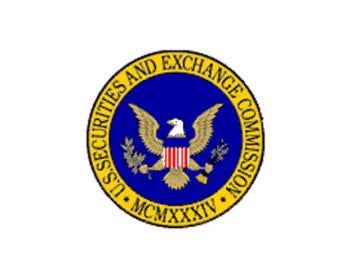In a move that has already been widely reported, on January 31, 2017, the SEC’s Acting Chairman Michael Piwowar issued a statement on the SECs conflict minerals rule, in which he directed the SEC staff to “consider whether the [April] 2014 guidance is still appropriate and whether any additional relief is appropriate in the interim.” Interestingly, he called for comments only about whether additional relief from requirements should be given, and not about whether any elements of the rule should be strengthened. He called for a 45 day comment period.
Along with that statement, he issued another statement providing some insight into this new reconsideration of the rule. This insight focused mostly on the “unintended consequences” of the rule on the human rights of the people of the Democratic Republic of Congo (DRC or Congo) and adjoining countries. He stated:
The disclosure requirements have caused a de facto boycott of minerals from portions of Africa, with effects far beyond the Congo-adjacent region. Legitimate mining operators are facing such onerous costs to comply with the rule that they are being put out of business. It is also unclear that the rule has in fact resulted in any reduction in the power and control of armed gangs or eased the human suffering of many innocent men, women, and children in the Congo and surrounding areas. Moreover, the withdrawal from the region may undermine U.S. national security interests by creating a vacuum filled by those with less benign interests.
Certainly, some NGO’s, activists, and people on the ground in the DRC have provided evidence that human rights conditions at some mines in the DRC have improved since the SEC conflict minerals rule was implemented. But, others point to evidence supporting the opposite conclusion. So, we can be sure that many comments will be submitted on both sides of that issue.
We will likely also see comments on the following: when should an independent private sector audit be required, should cobalt be added to the list of minerals covered by the rule, will formal confirmation be provided that chemically distinct compounds are not within the scope of the rule, and should the specific disclosure requirements for reporting companies be adjusted in light of the overall results of the due diligence efforts over the last 3 years.
The observation about the undermining of US national security interests is significant. Section 1502 of the Dodd-Frank Act, which required the SEC to issue the conflict minerals rule, includes a provision that permits the SEC to revise or waive the requirements of Section 1502 or the conflict minerals rule for two years if the President determines that the revision or waiver is in the national security interest of the US. So, by raising that national security concern, Acting Chairman Piwowar is telegraphing that it could be another justification for repealing or waiting (at least temporarily) the SECs conflict minerals rule.
Why should we not be surprised?
First, the legislative context. In 2016, Republican law makers introduced 2 bills in the U.S. House of Representatives that would repeal (or defund enforcement of) the SECs conflict minerals rule. And, another Dodd-Frank generated rule — the one relating to resource extraction payment disclosure, which would also have been reported on Form SD — is being reviewed and could be overturned under the Congressional Review Act (CRA). (The conflict minerals rule is not subject to being overturned via the CRA because the CRA can only be used by this new Congress to overturn final rules that were issued after early June 2016.)
Second, the Presidential context. Of course, the Trump Administration has pledged to review and overturn or repeal regulations it sees as overly burdensome. And, on January 26, 2017, President Trump named Commissioner Michael Piwowar as Acting SEC Chairman to serve until President Trump’s SEC Chairman nominee is confirmed by the Senate.
Third, the previous positions taken by Acting Commissioner Piwowar. On April 28, 2014, then Commissioner Piwowar (appointed by President Obama) and former Commissioner Daniel Gallagher, issued a statement on the SECs conflict minerals rule, which included the following:
Unfortunately, the evidence is that [the conflict minerals rule] has been profoundly counterproductive, resulting in a de facto embargo on Congolese tin, tantalum, tungsten, and gold, thereby impoverishing approximately a million legitimate miners who cannot sell their products up the supply chain to U.S. companies. Reconsidering Section 1502’s core approach would also save investors billions of dollars in compliance costs, and ease the problem of information overload by eliminating special interest disclosures that are immaterial to investment decisions.
That discussion is a clear preview of the concerns expressed by Acting Chairman Piwowar in yesterday’s statements.
Although not mentioned in either of the January 31, 2017 statements, it is worth noting the concern Acting Chairman Piwowar expressed about “special interest disclosures that are immaterial to investment decisions.” This view of social issue disclosure was shared by former SEC Chair Mary Jo White. It will be interesting to hear what SEC Chairman nominee, Jay Clayton’s, views are about these (non-climate change) “special interest disclosures.” Either way, this concern too could be a justification for repealing or significantly paring back the requirements of the SECs conflict minerals rule.
So, between now and the middle of March, supporters, detractors and reporting companies with questions and proposals will have their opportunity to weigh in on the SECs conflict minerals rule — as modified by the April 2014 SEC Statement. And those questions and proposals will be informed by 3 years of experience with the rule.




 i
i

